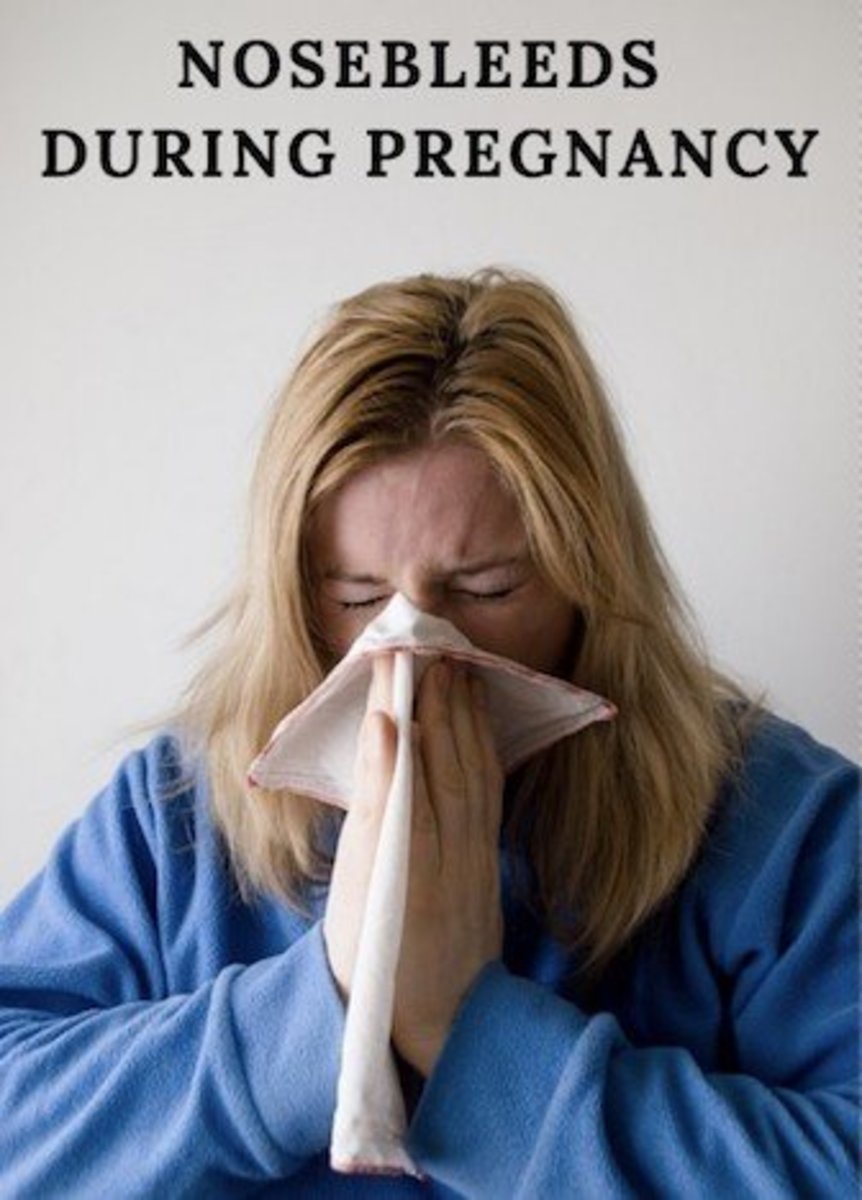Nosebleeds During Pregnancy

Contents:
- Causes of Blood From the Nose During Pregnancy
- It is Important to Know
- First Aid in Case of Nasal Bleeding
- Prevention of Nasal Bleedings
Nosebleeds in Pregnancy
Nosebleeds (epistaxis) is a bleeding that occurs because of the violation of integrity of blood vessels located in the nasal cavity and paranasal sinuses.
Causes of Blood from the Nose During Pregnancy
Pregnancy is a time of significant change in a woman's body, and changes occur not only in appearance, but also inside the body. During childbearing the levels of female sex hormones (estrogen and progesterone)increases, which side effect is increased blood in vessels of nasal mucous membrane. Inner membrane of a nose is swollen, loose, easily dries up, blood vessels become very brittle. A significant load during pregnancy is on the cardiovascular system, which leads to an increased blood flow in the body. In view of these factors, even a small load (e.g. blowing your nose) can cause nosebleeds.
Such pathological conditions include:
- Increased blood pressure. High blood pressure is dangerous for women and the further development of the pregnancy, because it violates circulation in the placenta. This leads to lack of nutrients and oxygen to the baby, fetal hypoxia and delay of fetal development. When signs of hypertension appear usually the pregnant is advised to go to the hospital, where she under the supervision of a therapist will be treated for lowering the blood pressure;
- A bleeding disorder. In this case, you need to consult a doctor-hematologist, examination and treatment under his control;
- Lack of calcium and vitamin K in a woman's body. During pregnancy the need for minerals and vitamins increases significantly. When flow of calcium and vitamin K from food is insufficient, fragility and fractures of vessels increases, which leads to frequent bleeding. Drugs, containing calcium and multivitamin complexes are prescribed for treatment;
- Injury of nose. Slight bleeding after injury requires immediate consultations of ENT doctor;
- Changes of the nasal mucosa (deviated septum, severe cold);
- High temperature in infectious diseases. Prolonged hyperthermia adversely affects the cardiovascular system, violates the bloodstream and increases capillary fragility of the nasal mucous membrane.
It is Important to Know
If bouts of bleeding from the nose being repeated infrequently (no more than once a week), are not abundant and quickly stop, they do not pose any risk for the mother and child. But be aware that in some cases, nasal bleeding are a sign of diseases that require examination and treatment.
First Aid in Case of Nasal Bleeding

- Moderately tilt your head forward while seated;
- Put on a nose ice or cloth moistened with cold water;
- Ensure access of fresh air (open window, undo the clothes, which are tight around the neck);
- Tightly press the bleeding nostril with your finger to the septum of a nose for 5-10 minutes;
- With abundant bleeding attach to the nose a cotton wool, moistened with hydrogen peroxide.
When you stop the bleeding it is strictly forbidden to:
- Strongly throw back the head (blood pressure in the head and bleeding increase);
- Lie down (in a horizontal position ingestion of blood in the stomach is possible that causes nausea and vomiting);
- Blow your nose (prevents formation of thrombus).
If the bleeding does not stop within 20 minutes, you should immediately consult a doctor.
Prevention of Nasal Bleedings
Basic methods of prevention of nasal bleeding in pregnant women:
- The frequent airing of living accommodation, air humidification. Fresh moist air will protect the mucous membrane of the nose from drying out, which enhances the fractures of vessels;
- Rational fluid intake. During the day you should drink 1.5-2 liters of clean water;
- Rational treatment of rhinitis. You should use nasal sprays and nasal drops only on the advice of a doctor. Blowing your nose should be done cautiously in order not to damage the fragile vessels of nasal mucous membrane;
- Frequent stay outdoors;
- Avoid inhalation of irritants by nose (detergents, cigarette smoke);
- Moistening of the nasal mucous membrane. For this purpose you can use children's vaseline, mineral water, warm sea water and ready-made saline nasal sprays (Salin, Acquamaris).